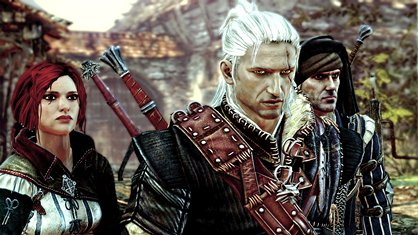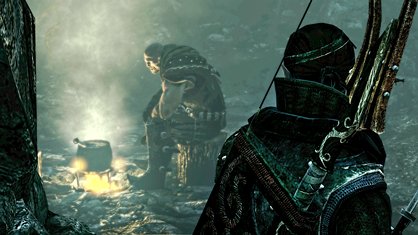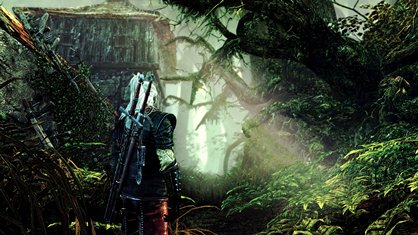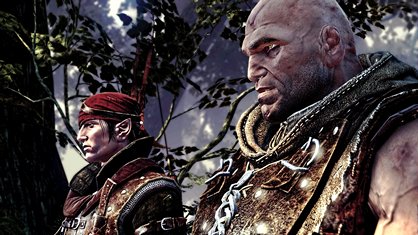How The Witcher 2 intensifies everything
Geralt faces a larger world, a deeper conflict, and harder choices
“We know our limitations,” says Witcher 2’s senior producer, Tomek Gop. It’s a relief to hear it. For all the credit given to its superbly grubby, off-kilter fantasy, The Witcher was a prime example of ambition outstripping the ability to implement it.

So even though Gop says that The Witcher 2 has been in production since the first much-vaunted RPG hit shelves, you can’t help but worry that it’ll remain a work-in-progress well after its own release. CD Projekt spent a year polishing The Witcher after launch, re-packaging it as an Enhanced Edition, which weeded out the many bugs, replaced the Polish-to-English translation, revamped combat and revised menu systems for clarity – among a slew of other substantial game-changing tweaks.
This is a commitment to the customer that few other studios would match, but it’s probably not the way CD Projekt would have preferred their debut game to turn out. So, for the sequel, they’ve put their sensible hat on and kept ambition in check – right? Well, sort of. They started by building a new engine from scratch, allowing for a much larger world, more profound in its reactivity to the player. Isn’t this asking for trouble?

“No,” says Gop, of course. While the majority of the team was still knocking The Witcher into shape, a small cadre of tech people went to work on the engine and tools to ensure there was a ready-made scaffold. Production has been smoother as a result. “We’re already scripting the game, we’re already implementing everything; we have the assets and the storyline,” says Gop. “There’s always trouble you don’t expect, but we have a lot of time for unseen things.”
Implementation has become far easier for the designers, he tells us. Dialogue trees are now cobbled together without the need to bother codemonkeys. And in The Witcher 2, these are interactions of much greater complexity and significance.

“I think that the story that we’ve written for The Witcher 2 is definitely bigger scale,” Gop says. “Whenever you make a choice, or do anything, you will see that it influences a lot more than one or two people. It might change history. We really pride ourselves on the moral ambiguity and choices you make. We don’t put them in the game because we have to have ten choices per chapter, we just think that they naturally fit in the story that we’ve created. And the difference in The Witcher 2 is that the world is going to change a lot more in the second part depending on your choices. Places will look really, really different due to your actions in previous chapters.”
Gop promises huge-scale conflicts, with returning anti-hero Geralt now finding himself unwillingly embroiled in events happening on the international field. Although reticent to get involved in politics, Geralt’s Witcher abilities inevitably thrust him onto the world stage. Having saved King Foltest from assassination at the conclusion of the previous game, he’s forced into His Majesty’s service, travelling through the land of Temeria on a mission to restore order.
Sign up to the GamesRadar+ Newsletter
Weekly digests, tales from the communities you love, and more

“We saw at the end of the first game that the would-be assassin had things that made him look like a Witcher,” says Gop. “Geralt doesn’t like that he can’t immediately pursue this thread of Witcher-like killers. But you don’t say no to a King, right? The King travels all around Temeria, removing all signs of the Flaming Rose rebellion. You start the second game in La Valette Castle, the last part of Temeria to have order restored, where a female Baron is trying to claim independence. Sooner or later things happen that make Geralt come back to the Witcher-like assassins: the main thread of the game is about who they are.”


